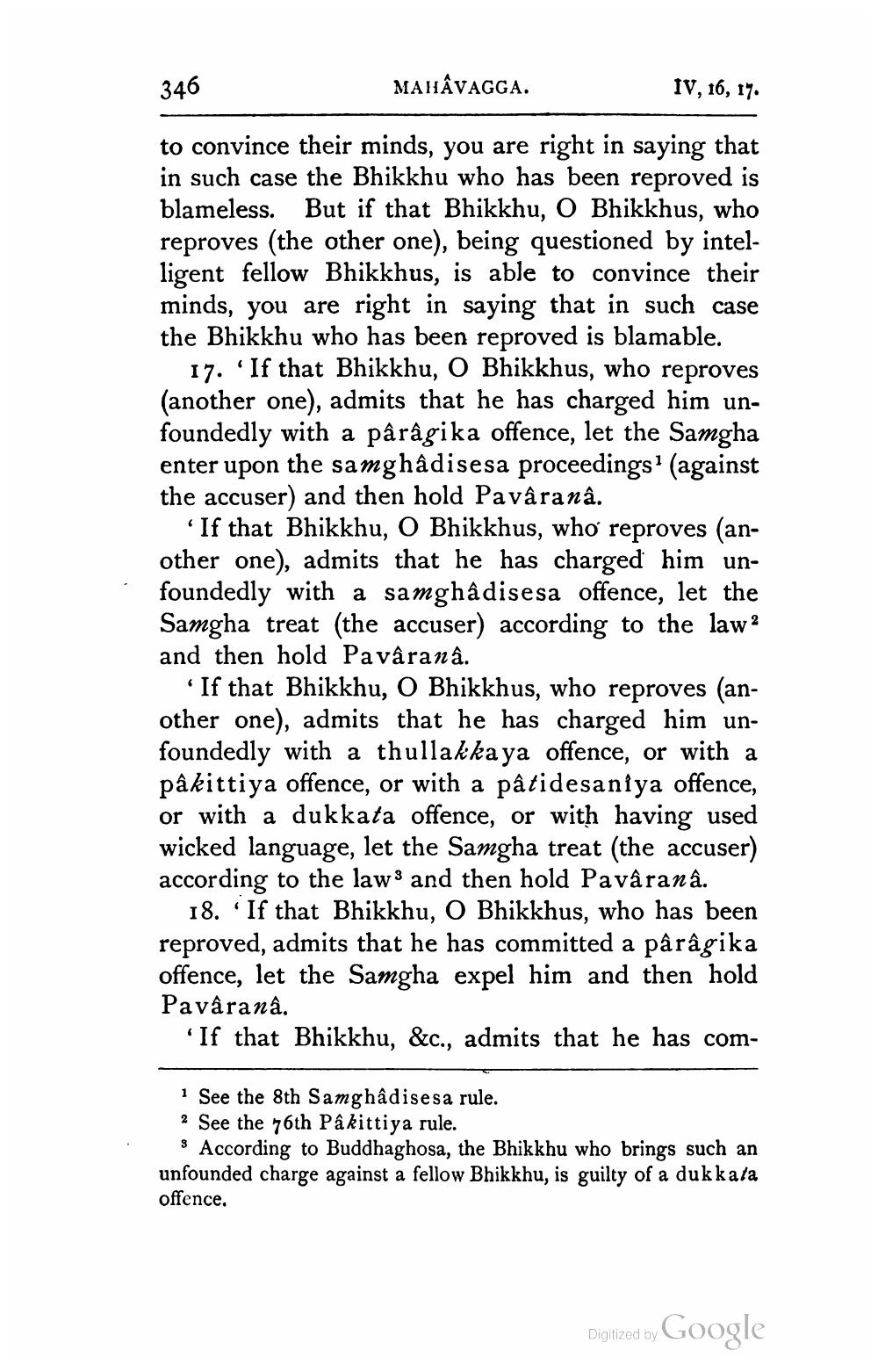________________
346
MAHÂVAGGA.
IV, 16, 17.
to convince their minds, you are right in saying that in such case the Bhikkhu who has been reproved is blameless. But if that Bhikkhu, O Bhikkhus, who reproves (the other one), being questioned by intelligent fellow Bhikkhus, is able to convince their minds, you are right in saying that in such case the Bhikkhu who has been reproved is blamable.
17. 'If that Bhikkhu, O Bhikkhus, who reproves (another one), admits that he has charged him unfoundedly with a pârâgika offence, let the Samgha enter upon the samghâdisesa proceedings' (against the accuser) and then hold Pavâranâ.
If that Bhikkhu, O Bhikkhus, who reproves (another one), admits that he has charged him unfoundedly with a samghâdisesa offence, let the Samgha treat (the accuser) according to the law and then hold Pavarana.
* If that Bhikkhu, O Bhikkhus, who reproves (another one), admits that he has charged him unfoundedly with a thullakka ya offence, or with a pâkittiya offence, or with a pâtidesaniya offence, or with a dukkata offence, or with having used wicked language, let the Samgha treat (the accuser) according to the laws and then hold Pavârana.
18. "If that Bhikkhu, O Bhikkhus, who has been reproved, admits that he has committed a pârâgika offence, let the Samgha expel him and then hold Pavârana.
'If that Bhikkhu, &c., admits that he has com
1 See the 8th Samghâdisesa rule. ? See the 76th Pâkittiya rule.
According to Buddhaghosa, the Bhikkhu who brings such an unfounded charge against a fellow Bhikkhu, is guilty of a dukkata offence.
Digitized by Google




